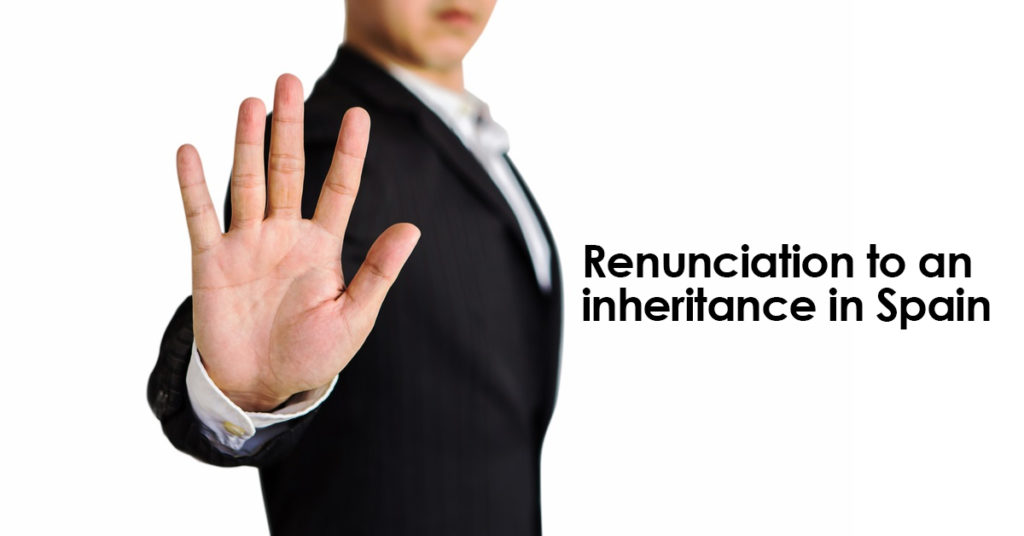OCCASIONALLY we receive enquiries from clients who wish to renounce an inheritance, sometimes the reason is because their debts and liability (passive) are higher than the assets and rights (active) to be inherited and therefore, it is not beneficial to inherit; although sometimes the reason is due to a bad family relationship or for tax purposes.
As explained in other articles, if you want to waive your right to or renounce an inheritance it must be done correctly, following proper legal advice so that you understand the options and possible consequences.
Tax consequences
It should be borne in mind that if a renunciation or waiver of the inheritance is made in favour of another person, it will have tax consequences, since Gift Tax must be paid on the transfer of the rights.
Total Renunciation or Waiver According to the Spanish civil code, the renunciation of inheritance must be total and therefore it is not possible to renounce or inherit only certain assets or rights.
In theory, any renunciation made in Spain, could affect inheritance rights related to assets in other countries, although this will have to be studied in relation to the applicable law to inheritance of that country.
The renunciation is irrevocable. According to article 997 of the Spanish Civil Code, the acceptance or repudiation of the inheritance IS IRREVOCABLE, and once the renunciation is made, it is not possible to then accept the inheritance or change your mind.
Resignation can affect the children of the person who resigns.
If there is a testament or Will, it is possible that it may foresee what should happen in the event that the heir renounces the inheritance so that it passes to children or to a different person.
IF there is no will and the inheritance is waived, this resignation will affect the children, because the right of representation of the children in relation to the inheritance rights of the parents only exist in cases of disinheritance or lack of capacity to inherit, as per article 929 of the Spanish Civil Code and this does not apply in the case of resignation or repudiation of the inheritance.
Article 929 says;
“A living person may not be represented except in cases of disinheritance or lack of capacity to inherit.” Renunciation is not included in this article.
Waiver from the perspective of applicable law
In any case, the aforementioned is not applicable to all inheritances related to assets located in Spain, since depending on the applicable law to the succession the effects of the waiver may be different.
Thus, the renunciation will have to be made taking into account European Regulation 650/2012, and the determination of the applicable law to the succession in Spain.
It may be the law of the country of nationality of the deceased or of their last habitual domicile at the time of death will apply so the renunciation has to be made correctly.
Sometimes waivers and renunciation are made which harm the rights of children to inherit, without the person involved being aware of it, due to the lack of knowledge of the effects and consequences of the resignation.
If you need expert legal advice on inheritance in Spain, renunciation, etc. contact our law firm and we will help you.
The information provided in this article is not intended to be legal advice, it simply transmits information related to legal issues.
Carlos Baos (Lawyer)
White & Baos
Tel: +34 966 426 185
E-mail: info@white-baos.com
White & Baos 2019- All Rights Reserved.
